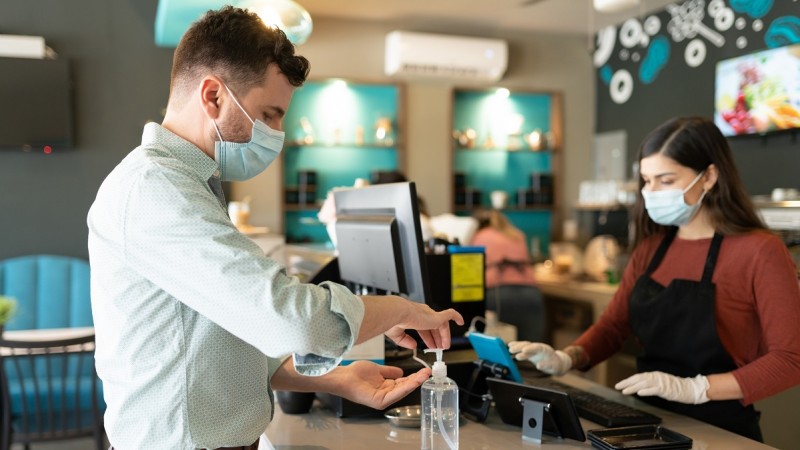Coronavirus: best possible protection through proper disinfection
August 4, 2020 at 9:30 AM ,
Der AUDITOR

The group of coronaviruses is not unknown, because other representatives of this strain have long been known to cause infectious diseases with severe cold symptoms. The special thing about Covid-19 is that it is a zoonosis, i.e. it was initially an animal disease that was transmitted to humans through dwindling barriers such as declining biodiversity. Our immune system did not reckon with this - nor did the global health systems, some of which have collapsed completely.
Few measures = high infection rate
Currently, the Johns Hopkins University reports 18,093,891 Covid-19 infections worldwide, including 689,625 deaths (as of 3 August 2020). By far the worst affected country is the USA, followed by Brazil, two countries in which the presidents initially played down the seriousness of the virus and where only lapidary measures were taken. Brazil's President Bolsonaro was infected himself. In Europe, too, the reactions are very different. Sweden, for example, decided very late to introduce measures such as compulsory masks, while in Germany tens of thousands of people demonstrated against the measures in Berlin at the weekend. The applicable hygiene measures were not observed, which was met with much criticism.
Best possible protection
The problem is: we cannot talk the virus away, as much as we would like to. Affected people report difficulties such as loss of smell and taste, pneumonia, pain, fever and numerous other symptoms, which can lead to death, especially in older and previously ill people. Although there is no such thing as a 100% protection, a number of means can be used to significantly slow down the spread of the virus. In addition to avoiding large crowds and observing the distancing rules, these include wearing a mouth and nose protecton in public places - this does not provide effective protection against infection, but prevents infected asymptomatic carriers of the virus from spreading it further through aerosols - and washing and disinfecting hands regularly.
Regular disinfection - but properly!
While in "normal" times the regular disinfection of hands and surfaces is only required in certain professions, in pandemic times all workplaces should be equipped with a suitable disinfectant that is also effective against coronaviruses. Regular disinfection after hand washing significantly increases self-protection and reduces the risk of exposure to foreign substances. The WHO has published a video on the correct use of disinfectants, which you can watch here.
An exclusive offer for Mundus-Agri members for a suitable disinfectant, modified according to WHO specifications and effective against SARS-CoV-2, SARS-CoV-1 and an EU-wide biocide authorisation, among others, is available here.



